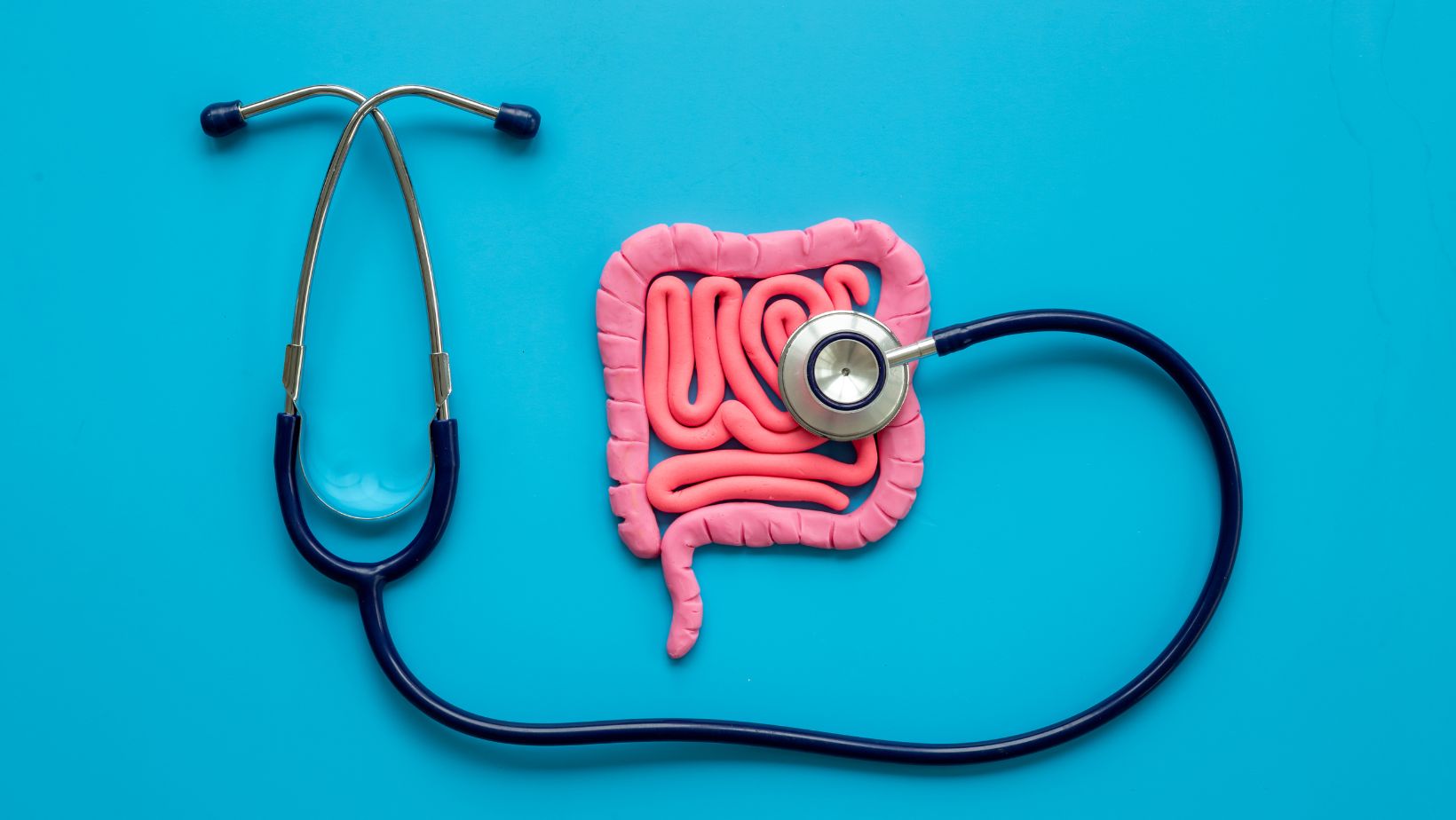How do I test my gut health?
Your gut health plays a key role in your overall well-being. It affects digestion, immunity, mood, and even skin health....

Your gut health plays a key role in your overall well-being. It affects digestion, immunity, mood, and even skin health. If you’ve been feeling bloated, dealing with constipation, or experiencing unexplained fatigue, it might be time to assess your gut health. But how do you test your gut health? Understanding the state of your gut microbiome can help you take steps to improve it. A gut health test gives you valuable insights into your digestive system, helping you make informed decisions about your diet and lifestyle.
Why Gut Health Matters
Your gut is home to trillions of bacteria that help digest food, absorb nutrients, and maintain your immune system. A healthy gut improves digestion, boosts immunity, and enhances mental clarity. When your gut health is compromised, it can lead to issues like bloating, gas, indigestion, and poor nutrient absorption. Over time, poor gut health can contribute to chronic issues such as irritable bowel syndrome (IBS), leaky gut, and even autoimmune disorders.
Testing your gut health allows you to identify imbalances and take corrective measures. It helps you understand whether you need to adjust your diet, increase fiber intake, or address an underlying issue like bacterial overgrowth or inflammation.
How Do I Test My Gut Health?
Testing your gut health involves various methods that give you a detailed picture of your digestive system. Here are the most effective ways to assess your gut health:
1. Stool Test
A stool test is one of the most reliable ways to test your gut health. It analyzes the composition of bacteria, yeast, and parasites in your digestive tract. The test provides insights into:
- Bacterial balance
- Presence of harmful pathogens
- Levels of inflammation
- Digestive enzyme activity
A gut health test like the Gut Health Test can help you identify specific imbalances in your microbiome and offer tailored recommendations to improve gut health.
2. Food Sensitivity Test
Food sensitivity tests measure your body’s immune response to certain foods. If you experience bloating, gas, or stomach cramps after eating specific foods, this test can identify the triggers. It helps you eliminate or modify problematic foods to reduce digestive discomfort and improve overall gut health.
3. Breath Test
A breath test detects levels of hydrogen and methane in your breath. High levels of these gases may indicate small intestinal bacterial overgrowth (SIBO) or other digestive issues. This test helps diagnose issues related to improper fermentation of food in the gut.
4. Blood Test
Blood tests can assess inflammatory markers, nutrient deficiencies, and immune responses linked to gut health. Elevated inflammation levels can signal gut lining issues or food sensitivities.
5. Microbiome Analysis
Microbiome analysis provides a detailed overview of the types of bacteria in your gut. It helps you understand whether you have a diverse and balanced microbiome. A balanced microbiome supports better digestion, immunity, and mood.
Signs That You Need to Test Your Gut Health
You might be wondering, “How do I test my gut health if I don’t have any obvious issues?” Even subtle symptoms can signal gut imbalances. Watch out for these signs:
✅ Frequent bloating and gas
✅ Constipation or diarrhea
✅ Unexplained fatigue
✅ Skin issues like acne or eczema
✅ Food sensitivities or intolerances
✅ Weak immunity (frequent colds or infections)
✅ Poor mood or mental fog
Testing your gut health can help you uncover the root cause of these issues and guide you toward effective solutions.
Benefits of Testing Your Gut Health
Testing your gut health provides you with actionable insights into how to improve your digestive system and overall health. Some key benefits include:
✅ Personalized Diet Recommendations
A gut health test identifies specific foods that support your microbiome and those that might be causing harm. This allows you to customize your diet for better digestion and nutrient absorption.
✅ Improved Digestion
Addressing bacterial imbalances, enzyme deficiencies, or food intolerances can reduce bloating, gas, and indigestion. You’ll feel lighter and more energized after meals.
✅ Stronger Immunity
A healthy gut strengthens your immune system. When your gut lining is intact and your microbiome is balanced, your body can fight off infections more effectively.
✅ Better Mental Health
Your gut and brain are closely connected through the gut-brain axis. A balanced gut can improve mood, reduce anxiety, and enhance mental clarity.
How to Prepare for a Gut Health Test
Preparing for a gut health test ensures accurate results. Here’s how to get ready:
- Avoid antibiotics for at least two weeks before the test, as they can alter gut bacteria.
- Stop taking probiotics for three to five days before the test.
- Follow the test instructions carefully—some tests require you to collect a stool sample or breathe into a tube at specific times.
- Maintain a balanced diet before the test to reflect your typical gut state.
Improving Gut Health After the Test
Once you receive the test results, you can start making targeted changes to improve your gut health. Here’s how:
🥦 1. Adjust Your Diet
Increase your intake of fiber-rich foods like fruits, vegetables, whole grains, and legumes. Fiber supports the growth of beneficial bacteria in your gut.
💧 2. Stay Hydrated
Proper hydration supports digestion and helps maintain the balance of gut bacteria. Drink at least 8–10 glasses of water daily to support gut health.
🥑 3. Include Probiotics and Prebiotics
Probiotics (like yogurt and fermented foods) introduce beneficial bacteria into your gut. Prebiotics (like garlic, onions, and bananas) feed those good bacteria, helping them thrive.
🚶 4. Manage Stress
Stress negatively impacts gut health. Practice stress management techniques like deep breathing, meditation, and regular exercise to support gut function.
🏃 5. Exercise Regularly
Physical activity improves gut motility and helps maintain a balanced microbiome. Aim for at least 30 minutes of exercise most days of the week.
Common Myths About Gut Health Testing
❌ “Only people with digestive issues need to test their gut health.”
Even if you feel fine, testing your gut health can reveal underlying imbalances and help prevent future issues.
❌ “Probiotics are enough to fix gut health.”
While probiotics help, they are not a cure-all. A comprehensive gut health plan includes dietary changes, stress management, and hydration.
❌ “Gut health doesn’t affect mental health.”
The gut and brain are deeply connected. Poor gut health can lead to anxiety, depression, and brain fog.
When to See a Doctor
If your gut health test shows significant imbalances or you experience persistent symptoms like severe pain, bloody stools, or unexplained weight loss, consult a healthcare professional. They can recommend further tests or treatments to address the issue.
Conclusion
Testing your gut health gives you valuable insights into your digestive system and overall well-being. Understanding your gut microbiome helps you make informed dietary and lifestyle changes that improve digestion, immunity, and mental health. If you’re wondering, “How do I test my gut health?” start with a reliable gut health test to uncover imbalances and take control of your health.



